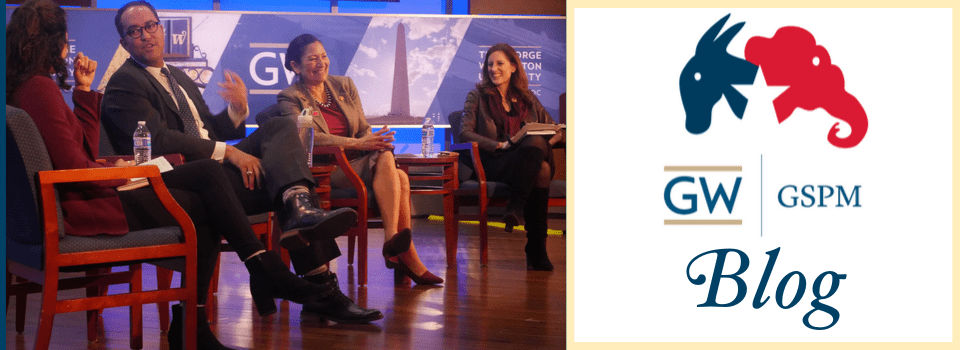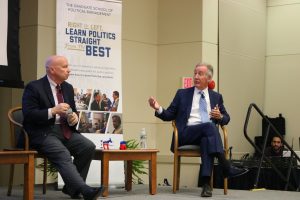A host of changes to politics over the last two decades, from redistricting and gerrymandering to modifications of campaign finance laws, have decreased incentives to govern effectively said one current member and three former members of Congress at an event Wednesday at the George Washington University.
Those changes and their consequences have given rise to a series of never-ending purity tests, says former Rep. Al Wynn (D-Md.). “I came into politics with the understanding that you compromise to get things done….,” Mr. Wynn said. “As a result of redistricting, you end up with inter-party fights, and I view it as a fight between ideological members and pragmatic centrist candidates.”
Mr. Wynn added that SuperPACs and other outside groups made the changes worse with outsized spending and advertising campaigns that seek to nationalize every race, rather than focusing on local issues.
Mr. Wynn was among four panelists at the event co-hosted by GW’s Graduate School of Political Management and the U.S. Association of Former Member of Congress. Also on the panel were former Rep. Cliff Stearns (R-Fla.), B.S. ‘63, former Sen. Blanche Lincoln (D-Ark.) and Rep. Charlie Dent (R-Pa.).
Read more at GW Today.


